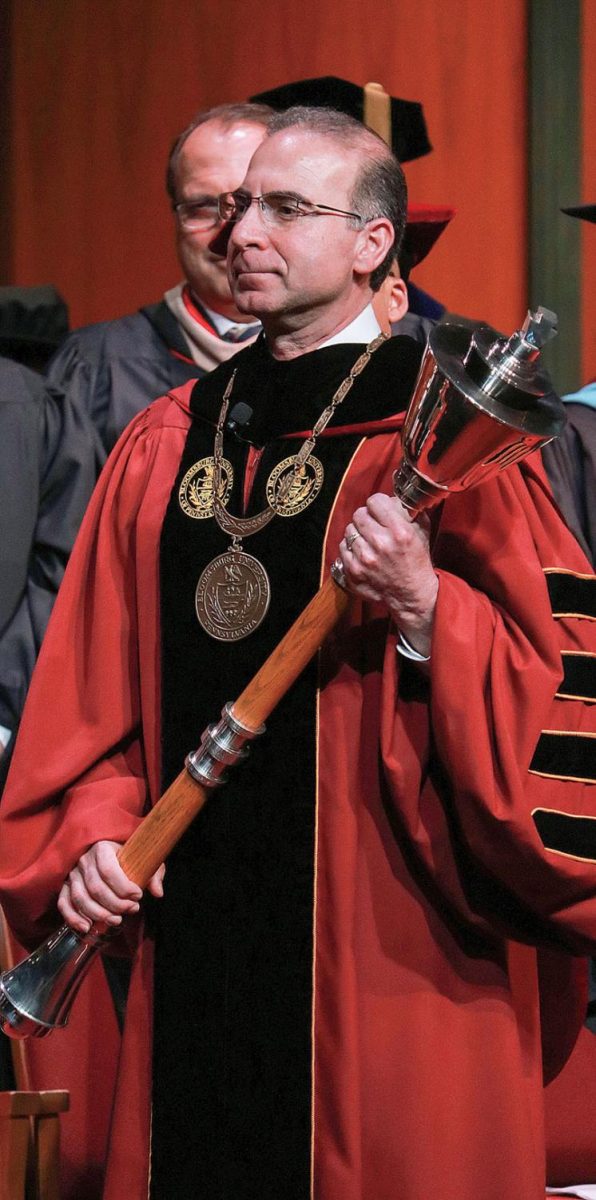Separate the art from the artist at your own discretion
February 23, 2021
The last decade has brought forward numerous allegations and convictions against a wide array of celebrities. Musicians, actors, writers, and artists alike have been accused of sexual assault, domestic violence, robbery, and even murder. The alternative metal singer Marilyn Manson has been accused of domestic violence, grooming, and rape by many young women.
And he is definitely not the first celebrity to come under fire with these types of accusations. In the past few years, dozens of famous people have been accused, with many of their careers damaged beyond repair. Kevin Spacey, Nick Carter, and Jeffrey Tambour are just a few of these people.
Personally, I feel that one should always believe the victim. Do people make up lies to defame artists? Of course. But that doesn’t mean that everyone is lying. Especially those who accuse celebrities of domestic assault and/or rape. I would rather believe the victim and then find out later that it was false than not believe the victim and later discover that what they said was true.
With the number of artists who currently have accusations against them or have in the past, does that make it so we can’t enjoy their previous works? If a singer is accused or even found guilty of a crime, is it still okay to listen to their music?
Some would say absolutely not, and others would say yes. I float somewhere in the middle. For example, Harvey Weinstein, creator of the Weinstein Company, the film company behind many major pictures, is a convicted sex offender. Can we still view the films he produced without guilt? In this case, I would say yes.
Weinstein may have produced these films, but he is not the only person responsible for the work. Also, the works are not representative of him; they are simply movies made for public consumption. In my opinion, you can still enjoy films such as “Good Will Hunting,” “Pulp Fiction,” and “Scary Movie” without feeling bad about it.
It becomes a bit more difficult to determine whether it’s socially acceptable to enjoy someone’s work in other situations. One of the biggest examples, in this case, is Michael Jackson. Almost everyone is aware of the fact that Michael Jackson was accused of molesting young boys. Did any of these accusations ever truly amount to anything? No, because the man died before anything could ever come of it.
Despite these accusations, Jackson was a worldwide phenomenon, breaking records and making millions in sales. Jackson grew up in the spotlight and was always in the public eye. It made many people very uncomfortable to imagine their idol as the type of person who might molest little boys.
Your opinion on whether it’s okay to listen to his music depends on what you believe. I think that Jackson quite possibly did do the things he was accused of, but I still like some of his songs. I tend to like the beat of certain songs rather than the person who sings it. Usually, if I like the way something sounds, I’m going to listen to it, regardless of who’s singing it. Does this make me a bad person? I hope not.
Choosing whether or not you will or will not watch a movie, listen to a song, or read a book based on someone who made it or wrote it is your choice. Most of the time, I believe we should not limit ourselves. Now, when it comes to funding or supporting someone who’s been accused of crimes, this is a line I will not cross. Even if they are eventually cleared of wrongdoings, I’d instead not give money to a possible criminal.
Today, in the age of social media, it feels like there’s a new accusation coming out each day. And you wouldn’t be wrong in feeling like this because it’s essentially true. More and more people are coming forward to accuse celebrities, whether or not they are truthful.
If you still want to watch a movie with an actor who has been accused of rape, go ahead and do it. Personally, it’s distracting when I’m watching a film or TV show and one of the actors has been accused of such a thing. All I can think about is the accusations that they have against them or have been convicted of. Maybe it’s because films are a visual genre, and you have to view the actors on the screen repeatedly.
All in all, I think you can separate the artist from their works, but only to a certain extent. If an actor is convicted of domestic abuse, I will not view their movies. But if a writer is accused of, let’s say, murder, I’d probably still read their books.
In this situation, though a murderer wrote the book, I’m not looking at or hearing that person while reading. I’m merely reading a book and enjoying it. It’s a free country, so do what you want to do, but always consider what goes on behind the scenes of the films, books, music, and art you consume.




















